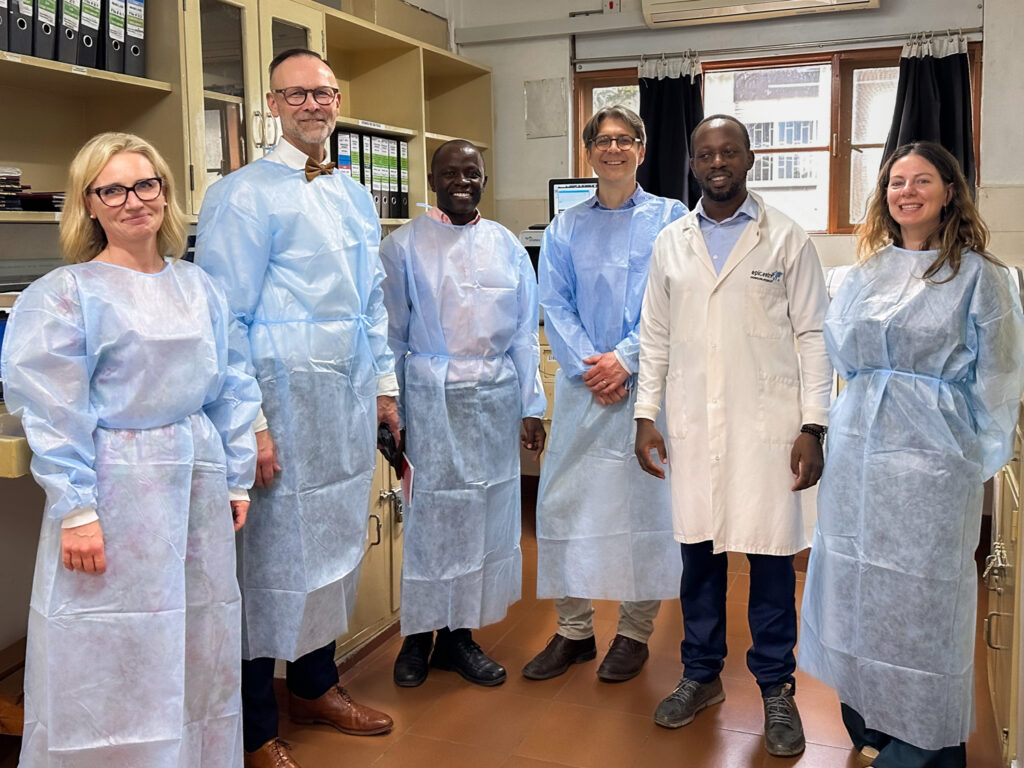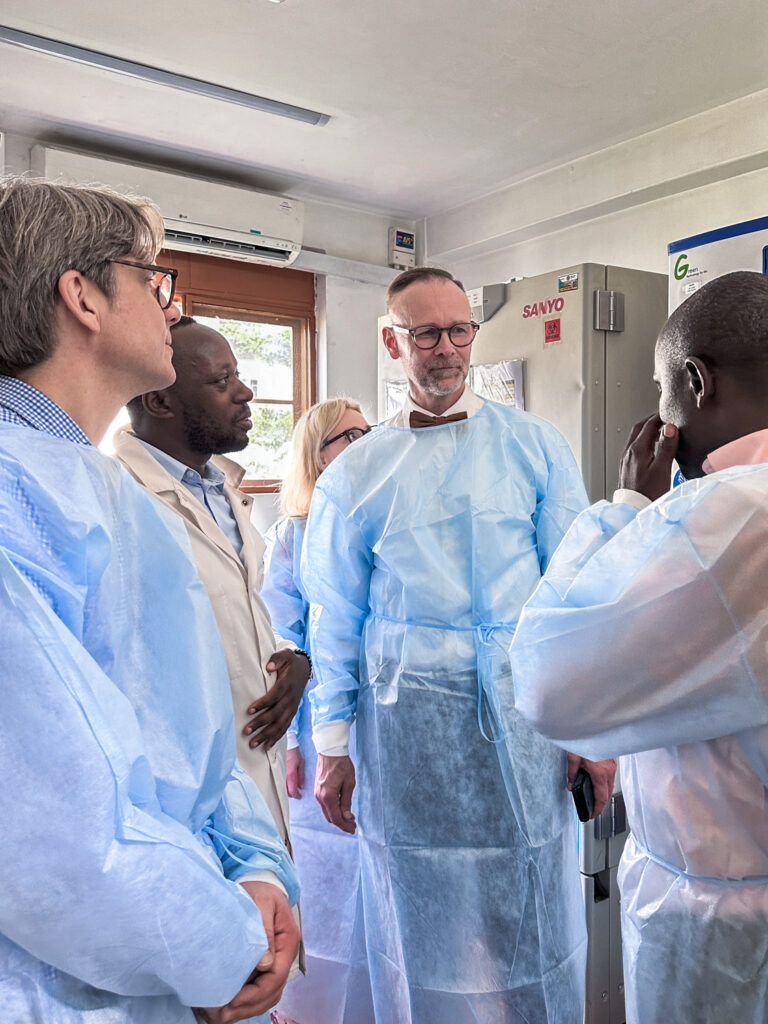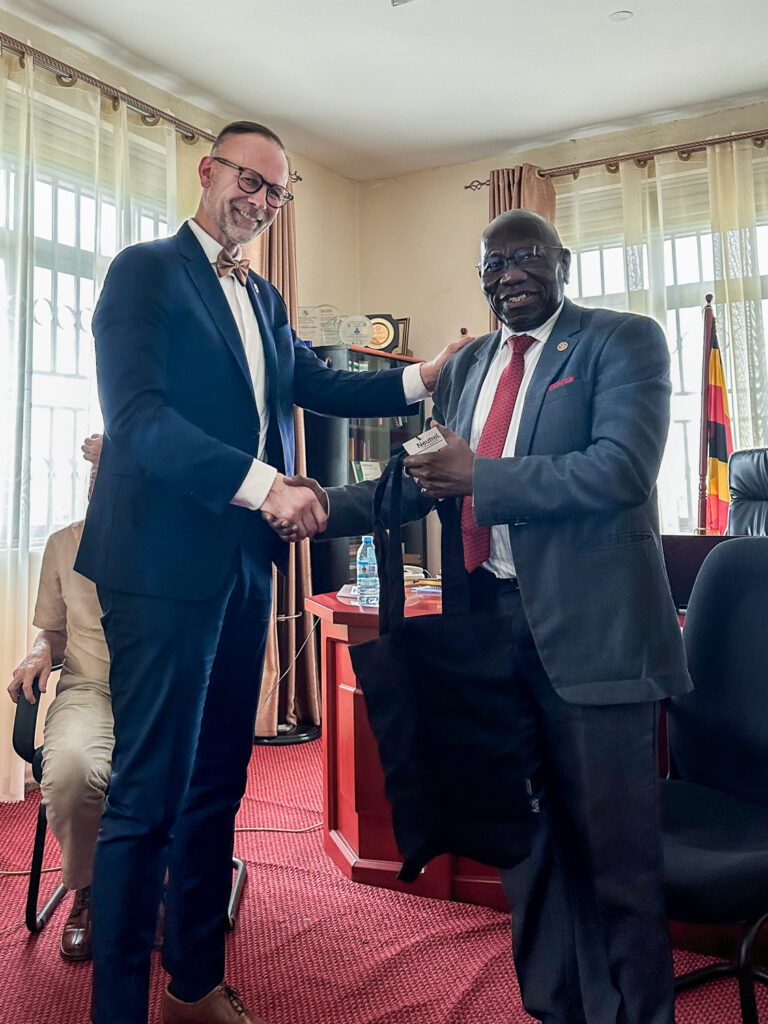Advancing Healthcare Capacity:
HOLICARE's Collaborative Efforts in Uganda
A Karolinska Institute delegation visited Mbarara University of Science and Technology (MUST), Mbarara Regional Referral Hospital (MRRH) and the MSF/Epicentre in Uganda.
Martin Bergö, Vice President, Tobias Alfvén, Professor and Giulia Gaudenzi, Assistant Professor at Karolinska Institutet visited our Ugandan partners Celestino Obua, Vice Chancellor of MUST, Prof. Juliet Mwanga-Amumpaire, director of MSF/Epicentre and faculty at MUST, Dr. Elias Kumbakumba, director of Paediatric Unit at MRRH and faculty at MUST and Dan Nyehangane, Laboratory Coordinator at MSF/Epicentre and faculty at MUST.
This visit gave our partners the opportunity to review HOLICARE capacity-building initiatives aiming at strengthening the research and healthcare infrastructure at MRRH and MUST to fight against respiratory diseases with appropriate diagnostics tools. This involves training programs for Ugandan researchers, healthcare professionals, and students, as well as providing technical assistance and mentorship to local institutions. Furthermore, as one of the objectives of HOLICARE is to create quality-controlled biobanks in Sub-Saharan Africa, the Epicentre-MUST partners further organized a guided tour of their biobank facilities.
Beyond HOLICARE’s first focus, which is to strengthen access to diagnostic testing for a broader part of the population, this collaboration extends to various research projects aiming at improving clinical care, developing protocols for disease management, and implementing best practices in healthcare delivery. In line with the HOLICARE holistic approach, this relies also on long-term education and training activities such as courses, workshops, and seminars for healthcare professionals and researchers. This also includes academic exchange programs for students and faculty between Karolinska Institutet and Ugandan institutions, emphasizing equity and partnership for capacity-building effort through research collaboration.
The visit fostered discussions on potential avenues for further collaboration and exchange, enhancing the partnership’s impact on healthcare outcomes in the region.



